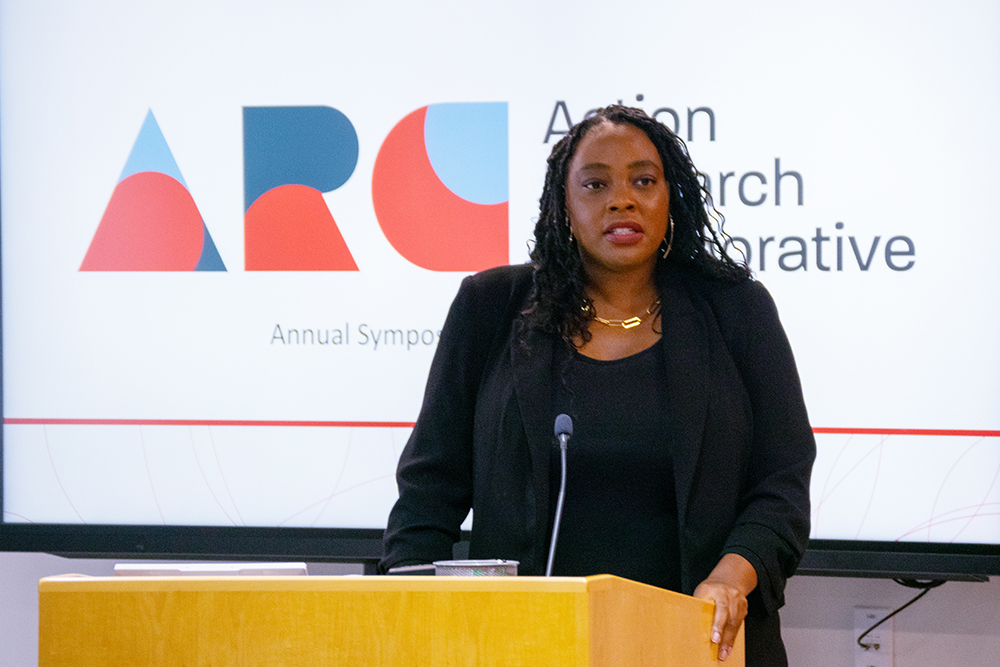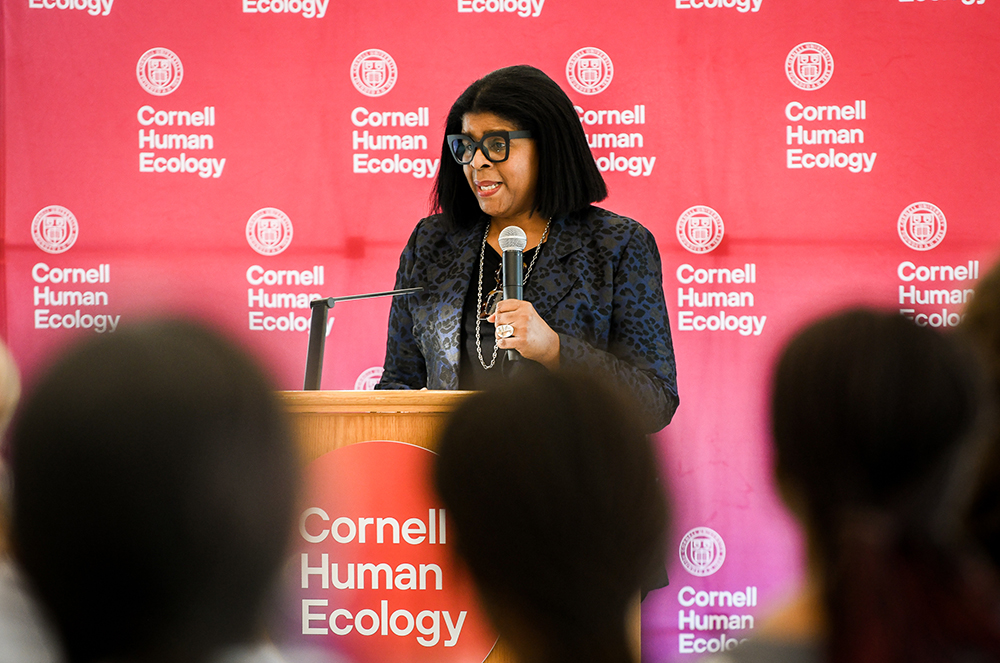Belonging

Our commitment to cultivating a diverse and inclusive Cornell Human Ecology community is part of our mission to understand and improve the human experience in every context.
This work builds upon our history of expanding access to education, engaging with communities and extending research to improve social systems, as well as our cornerstone principles of inclusion, interdisciplinarity, impact and innovation. It aligns with Belonging at Cornell, the university’s plan for creating a campus community where individuals from diverse backgrounds and life experiences can both contribute and thrive. Within the Belonging at Cornell website, there are several Diversity and Inclusion Resources.
Recognizing that systemic social injustice requires systematic approaches to dismantle, the college has undertaken a comprehensive plan to work more actively against structural inequality and to promote diversity, inclusion, equity, and belonging among all individuals, regardless of age, (dis)ability status, ethnicity, gender, nationality, religion, sexual orientation and socioeconomic status.
Goals
Awareness, dialogue and training
- Engage college leadership in ongoing education and dialogue to continuously broaden our perspectives and inform the way we lead and approach social justice and equity.
- Provide and encourage college-wide conversation, education and training around social justice and equity.
College structures and programming
- Enhance our curriculum and out-of-classroom experiences to incorporate social justice and equity and build upon our history of community-engaged learning to provide students the opportunity to put their education into action to create social change.
- Increase support to make both in-classroom and out-of-classroom experiences accessible for all students regardless of circumstance.
- Develop graduate fellowships that enhance the diversity of our graduate programs and the pipeline in academia.
- Recognize and support faculty, staff and students whose work enhances social justice and equity.
Representation
- Increase the diversity of our student body and the leadership of student organizations and develop new student organizations that enhance social justice and equity and provide opportunities to create supportive communities.
Initiatives
Pathways to Social Justice Faculty Cohort
In 2021, CHE welcomed new faculty members whose work addresses race, ethnicity, and the nature, persistence and consequences of inequality as part of a college-wide faculty cohort hiring initiative called Pathways to Social Justice. The initiative brought more diverse perspectives to Human Ecology classes and research, with the goal of making social justice issues an integral part of our educational approach.
Action Research Collaborative
Launched in 2022, the Action Research Collaborative (ARC) is Cornell’s institutional home for fostering cross-sector collaborations that bring together researchers, community organizations and policymakers to generate sustainable solutions that promote equity and address pressing societal issues.

Graduate Fellowships
As part of increasing access to graduate programs and enhancing the diversity of the pipeline in academia, CHE provides summer funding for two graduate fellowships per year via the Action Research Collaborative, and one graduate fellowship for two years.
Flemmie Kittrell Visiting Scholar
The visiting scholar program brings to campus notable experts who are tackling present-day challenges to the human experience. It honors Flemmie Kittrell (1904-1980), a global leader in home economics education and the first Black woman in the U.S. to receive a Ph.D. in nutrition (and the first in any subject at Cornell). The first visiting scholar, Ruth C. Browne, president and CEO of Ronald McDonald House New York, came to CHE in fall 2023.

Leadership
Eve DeRosa, the Mibs Martin Follett Professor in Human Ecology, is the Dean’s Fellow for Social Justice and Equity, appointed in fall 2020 to lead faculty-driven efforts in this area.
Gayogo̱hónǫ' Land Acknowledgment for the Ithaca Campus
Cornell University is located on the traditional homelands of the Gayogo̱hónǫ' (the Cayuga Nation). The Gayogo̱hó꞉nǫ' are members of the Haudenosaunee Confederacy, an alliance of six sovereign Nations with a historic and contemporary presence on this land. The Confederacy precedes the establishment of Cornell University, New York state, and the United States of America. We acknowledge the painful history of Gayogo̱hónǫ' dispossession, and honor the ongoing connection of Gayogo̱hó꞉nǫ' people, past and present, to these lands and waters. Learn more about this land acknowledgment through the American Indian and Indigenous Studies Program.